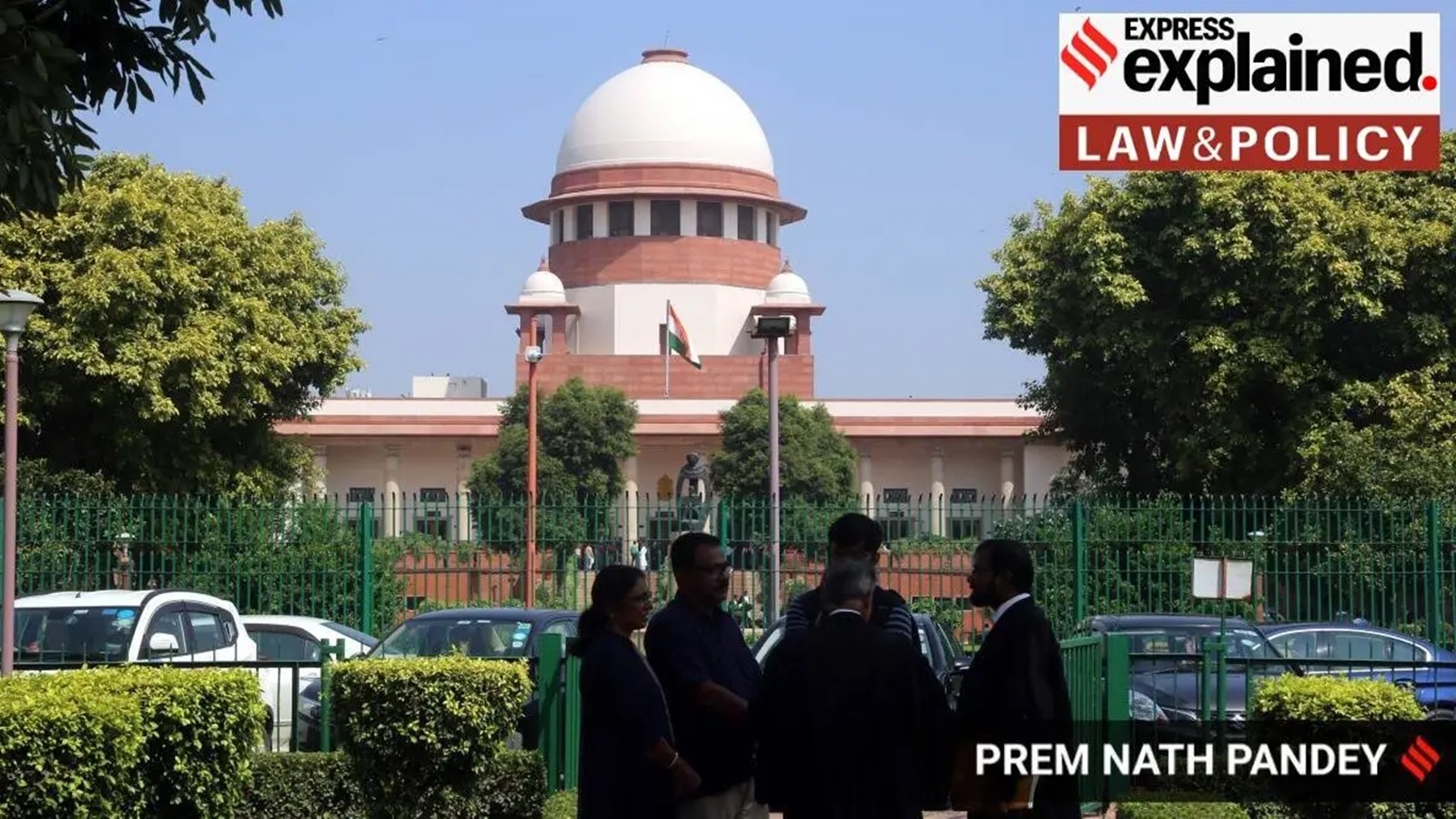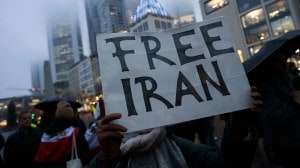Why did SC reject SBI’s application for extension of time to submit details on electoral bonds?
The SBI had filed an application on March 4, asking for time until June 30 to comply with the court's direction in its landmark judgment striking down the EBS last month. The application was filed two days before the expiry of the deadline set by the court in its judgment.
 On February 15, a Bench led by the CJI had said the controversial scheme, which allowed unlimited anonymous funding of political parties, violated the right to information of voters under Article 19(1)(a) of the Constitution. (Express photo)
On February 15, a Bench led by the CJI had said the controversial scheme, which allowed unlimited anonymous funding of political parties, violated the right to information of voters under Article 19(1)(a) of the Constitution. (Express photo)The Supreme Court on Monday (March 11) directed the State Bank of India (SBI) to provide to the Election Commission of India (ECI) the details of donations made to political parties through the Electoral Bonds Scheme (EBS) by close of business hours on Tuesday (March 12).
A five-judge Constitution Bench led by Chief Justice of India (CJI) rejected SBI’s plea to extend the deadline for furnishing this information, and directed the ECI to publish the details provided by the bank on its (ECI’s) website by 5 pm on March 15.
Why did the SBI go before the court?
The SBI had filed an application on March 4, asking for time until June 30 to comply with the court’s direction in its landmark judgment striking down the EBS last month. The application was filed two days before the expiry of the deadline set by the court in its judgment.
On February 15, a Bench led by the CJI and also comprising Justices Sanjeev Khanna, B R Gavai, J B Pardiwala, and Manoj Misra, had said that the controversial scheme, which allowed unlimited anonymous funding of political parties, violated the right to information of voters under Article 19(1)(a) of the Constitution.
The court had ordered SBI to submit to the ECI by March 6, the “details of the Electoral Bonds purchased since…12 April 2019 till date…”. It had specified that the “details shall include the date of purchase of each Electoral Bond, the name of the purchaser of the bond and the denomination of the Electoral Bond purchased”, as well as the “details of political parties which have received contributions through Electoral Bonds since…12 April 2019…”.
SBI was directed to “disclose details of each Electoral Bond encashed by political parties which shall include the date of encashment and the denomination of the Electoral Bond”.
However, in its plea seeking extension of the deadline to submit the details to the ECI, the SBI claimed that information on donors (purchasers) and recipients was maintained in “two separate silos”, and therefore, the process of matching each individual bond purchased with the bond encashed by a political party would take time.
Who challenged the SBI’s plea for extension of the deadline?
The Communist Party of India (Marxist) and the Association for Democratic Reforms (ADR) filed contempt petitions, saying the SBI’s request for an extension demonstrated “willfull disobedience” of the court’s directions in the February 15 judgment striking down the EBS.
The petitioners underlined the fact that SBI had chosen to wait until two days before the expiration of the SC’s deadline to file its application.
The CPM petition alleged that SBI had “deliberately misconstrued” the directions of the Supreme Court, because the judgment did not require each bond purchased to be tallied against a bond that had been redeemed by a political party.
Rather, the court had only asked for the release of details of the purchaser (name, date of purchase of bond, denomination of bond) and the details of the political parties that received and encashed the bonds (date of encashment and denomination of bond). Both these sets of information are readily available with the SBI, the petition said.
Even if this tallying exercise was required, the SBI has not “provided any cogent reasons for why this exercise would require an extension of over three months”, the petition added.
So what did the court say on March 11?
When the five-judge Bench led by the CJI reconvened to hear the SBI’s application and the contempt petitions, Senior Advocate Harish Salve, representing SBI, submitted that in order to keep the details of electoral bonds purchased secure, they were maintained in physical form, and not digitally.
Also, he argued, the name of the purchaser and the details of the purchase were kept in separate locations. These factors added to the time that the process would take, he submitted.
CJI Chandrachud pointed out that all of this information was still sent to the main SBI branch in Mumbai, and could be found there. Further, each time a bond was purchased, the buyer was required to submit details through a Know Your Customer (KYC) process which, the CJI said, implies that the information is available to the SBI, even if it is being kept in a sealed cover.
The Bench also questioned Salve on the steps taken so far, because the SBI had not submitted any information on its progress since the passage of the judgment on February 15. Salve stated that as per a “rough calculation” done by SBI, this would require three more months, and cautioned that any mistake in the information published could result in legal action against SBI.
Towards the end of the hearing, after the Bench had repeatedly pointed out that SBI was not required to match the bonds purchased to those enchased by political parties, Salve conceded that the process could be completed in three weeks.
However, the Bench did not accede to SBI’s request and directed it to submit all of the information to the ECI by March 12, so that the ECI could publish this on its website by March 15.
The court also dismissed the contempt petitions, holding, however, that contempt proceedings could be re-initiated if the SBI failed to comply with the new timeline.
- 01
- 02
- 03
- 04
- 05






































